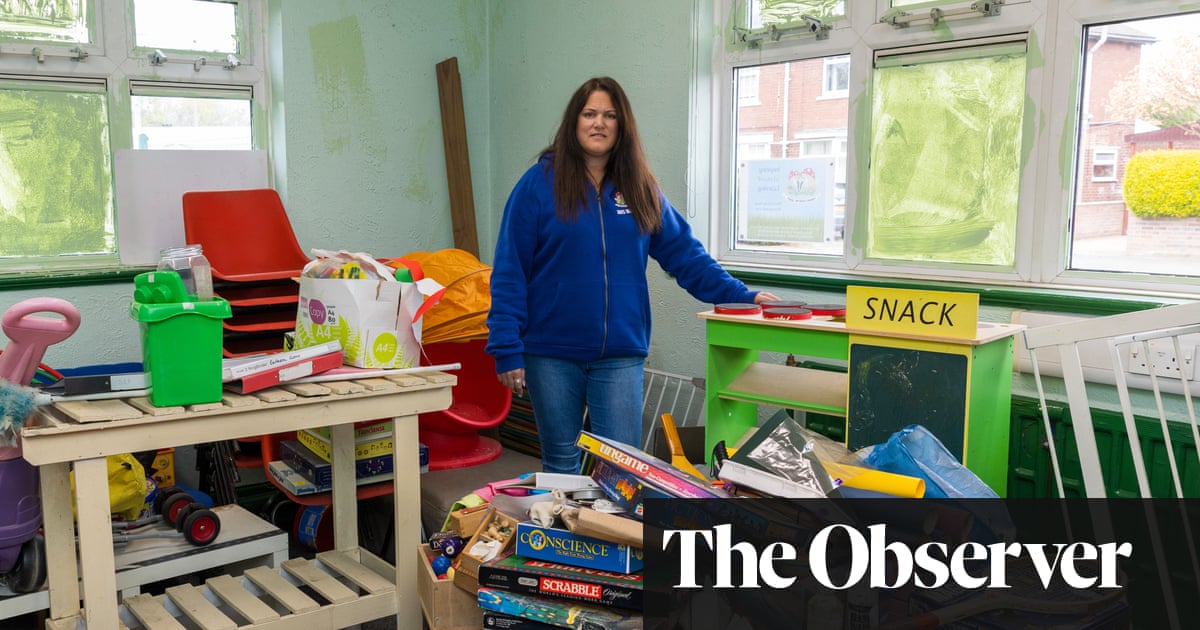A governmentpledge to create more nurserieshas backfired, according to early years providers. More than a dozen schools are evicting existing preschool providers that operate in classrooms amid concerns they are doing so to access state funding to set up their own provision.
It means that the pledge to create thousands of nursery places may be fulfilled by cannibalising some of the existing preschools, according to theEarly Years Alliance(EYA).
The umbrella group said in some cases schools were offering less childcare and for fewer children than the private, voluntary and independent (PVI) nurseries that had previously worked on their premises, so parents would be forced to find childminders to maintain their existing levels of care.
On 2 April the government approved funding for thefirst 300 school-based nurseriesto meet its pledge to create more than100,000 new places in Englandfor children from nine months old.
Many private nurseries already operate on school premises, and only 9%, or 27, of the 300 schools with funding have confirmed they are working with their nursery tenants.
So far, 15 preschools have contacted EYA to say they had been told they would need to leave at the end of the summer term.
Neil Leitch, EYA chief executive, said ministers had intended the nursery funding to address “childcare deserts”, where parents were forced to stay at home rather than work because there was no help available.
“They said they were really keen to work alongside existing providers because, if you’re not careful, you risk creating a childcare desert somewhere else,” he said.
“The policy seems to have significantly drifted from what we were led to believe – that there would be additional support where it was needed and it would not damage the PVI sector. To sideline the existing provision is folly. It is short-term folly.”
Leitch said PVI nurseries that work with the most vulnerable families tended to be in less affluent areas and disrupting funding made it more likely they would be forced to shut.
He added he was disappointed thatDepartment for Education(DfE) guidance suggested schools should make it easier to evict PVIs or childminders by giving them licences rather than leases, which gave security of tenure.
“Many are starting to feel this government is anti- existing providers. It may be an unintended consequence, but when you write statements encouraging schools to not give decent leases to the PVI sector, it’s difficult to interpret it in any other way.”
Alison Wilkinson leads a volunteer playgroup with 24 three- to four-year-olds in Doncaster that has been active for 32 years.
But the primary school it operates from has told it to leave by July, she said, and although it has finally found an alternative building, the venue needs refurbishment, threatening the future of the preschool and its charity, which offers support and equipment such as buggies for new parents. “If we don’t get any support, we’re going to close come September and there’s jobs that are going to be lost and the community isn’t going to have a charity that supports them,” she said.
“It’s really stressful,” she added. “We’re struggling to get tradesmen quotes. Being a nonprofit, we can’t get grants until you’ve got quotes, then you’ve got to wait for the grant. And we’ve got to re-register with Ofsted.
“We’ve never had to advertise. Parents come back to us year on year. They’re very upset because they love my staff. Basically we’ve got to build this whole new community again.”
Wilkinson’s preschool offered all-day support but she believes the school only plans to offer morning sessions, so parents would need to find childminders to fill in.
Rebecca Stanford-Durdan, who runs the St Michael’s playgroup in Finedon, Northamptonshire, said she had always had a good relationship with her school but was stunned when it called her to a meeting in March to tell her it was terminating the contract to create its own nursery.
“I was quite upset – I didn’t see it coming. I knew what the government were doing but I didn’t think it would happen to us.” Stanford-Durdan added the playgroup was lucky to find a local community centre to move to. “I’ve come across other settings who have had to close,” she said.
Richard Freedman, chair of governors of Finedon infant school, said the school had been “actively considering adding its own nursery but timing had not been right“ and that the decision to do so was “not connected to the government’s drive to create new places”. He expected there to be more overall provision in the town.
Sian, who runs a preschool in Surrey, was told in October that her lease was being cancelled.
“I thought they were going to extend our lease and then they said: ‘No, we’re getting rid because the government want all nurseries in school and we could get £150,000 for it,’” she said. The preschool has found another premises in a village nearby but she is having to pay rent on the new site and the school building while refurbishments are happening.
A DfE spokesperson said: “Expanding access to high-quality early years education where it’s needed most, so every child gets the best start, is vital to delivering our plan for change. We continue to value the vital role of private and voluntary providers, who remain central to our childcare reforms, including through targeted funding like the £100m childcare expansion capital grant.“From September, we will be extending funded hours to 30 hours a week, saving parents up to £7,500 a year as we also create thousands of places in new school-based nurseries. This expansion will help us get a record proportion of children school-ready, hitting key developmental targets.”
